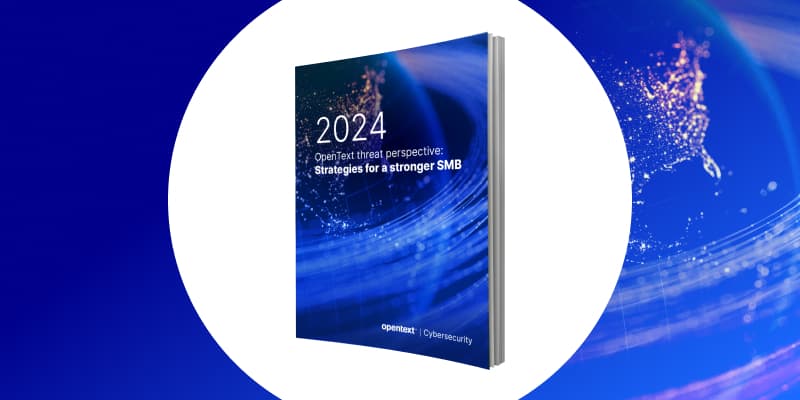
“I
bought
a
Mac,
because
it’s
safer
than
a
PC.”
“I
always
surf
the
web
with
my
iPhone,
because
I
know
it
can’t
get
infected.”
“I
got
a
virus
on
my
first
PC,
so
now
I
only
use
Apple
products.”
Sound
familiar?
Too
often,
the
rhetoric
around
the
Mac
vs.
PC
debate
focuses
on
Apple’s
presumed
invincibility
to
cybercrime.
Many
people
believe
(a
belief
that
is
bolstered
by
Apple’s
marketing
of
“security
by
design”)
that
unlike
Windows
devices,
Apple
products
are
immune
to
cyber
threats.
This
logic
is
deeply
flawed.
Apple
products
can
and
do
get
hacked.
People
who
believe
their
devices
are
unhackable
are
most
at
risk
of
falling
to
a
cybercriminal.
A
false
sense
of
security
could
blind
people
to
the
threats
out
there.
In
this
article,
we’ll
explore
the
myth
of
Apple’s
immunity
to
viruses
and
outline
a
few
recent
threats
Mac
users
should
be
on
the
lookout
for.
Where
Did
the
Myth
Come
From?
The
relative
global
unpopularity
of
Apple
devices
is
likely
a
large
contributor
to
the
myth
that
they’re
virus-proof.
Worldwide,
Android
is
far
and
away
the
most
popular
operating
system.
Seventy-two
percent
of
global
mobile
devices
run
off
Android.
Apple
iOS
is
in
a
far-away
second
place
at
27%.1
Cybercriminals
are
busy
people
just
like
the
rest
of
us
and
want
to
get
the
most
reach
for
their
nefarious
efforts.
That’s
why
they
design
most
viruses
to
attack
Android
systems:
Because
there
are
more
possible
targets
to
infect
and
propagate
their
illegal
bugs.
While
Apple’s
security
systems
are
certainly
robust,
security
is
also
a
priority
for
every
other
mobile
device
and
computing
system
out
there.
On
your
cellphone,
tablet,
or
laptop,
does
it
seem
like
you’re
always
getting
alerts
to
update
the
software?
In
many
cases,
software
updates
are
made
in
response
to
stop
newly
discovered
threats
that
have
or
could
possibly
sneak
through
gaps
in
their
current
security
protocols.
No
technology
company
wants
to
leave
its
users
vulnerable
to
cybercriminals
nor
do
leaders
want
their
company
in
headlines
for
the
wrong
reasons.
As
long
as
you
keep
your
devices
up
to
date
and
follow
a
few
digital
safety
best
practices,
you
should
be
protected
against
many
threats
regardless
of
whether
you
have
an
Apple
or
Android
operating
system.
Apple-specific
Viruses
to
Watch
Out
For
To
further
illustrate
that
Mac
users
should
be
just
as
careful
online
as
everyone
else,
here
are
a
few
viruses
that’ve
broken
through
Apple’s
excellent
security
lately.
-
XMRig.
A
pirated
version
of
Final
Cut
Pro,
an
Apple-specific
video
editing
software,
was
responsible
for
spreading
crypto
mining
malware.
Disguised
as
free
editing
software,
users
unknowingly
downloaded
XMRig,
which
diverts
computing
power
to
mining
cryptocurrency
for
the
cybercriminal’s
own
account.
This
malware
is
particularly
sneaky
because
when
users
check
their
Activity
Monitor,
the
program
shuts
down
then
reboots
when
the
user
exits
Activity
Monitor.
So
even
when
the
user
perceives
that
something
is
amiss
with
their
machine,
the
machine
shows
that
everything
is
normal.2 -
oRAT.
This
malware
hid
itself
within
ads
and
by
hitching
onto
free
software
downloads.
It
had
many
capabilities,
such
as
keystroke
logging
and
giving
itself
admin
access
to
Mac
devices.
Hackers
used
oRAT
to
spy
on
targets
and
potentially
steal
sensitive
personal
information.3
Every
villain
necessitates
a
hero,
and
these
recent
Apple
viruses
underscore
the
importance
of
threat
research
and
responsible
vulnerability
disclosure.
Vulnerability
disclosure
refers
to
a
company’s
obligation
to
tell
the
public
about
their
security
flaws.
Cybercriminals
are
getting
faster
and
smarter
every
day.
The
collective
power
of
a
global
community
of
researchers
collaborating
to
identify
and
disclose
critical
vulnerabilities
is
an
important
step
in
eliminating
these
types
of
malicious
campaigns.
Equally
as
important
is
dissecting
attacks
in
their
aftermath
to
expose
unique
and
interesting
characteristics
and
empowering
defenders
and
developers
to
mitigate
these
threats
in
the
future.
How
to
Keep
Your
Apple
Device
Safe
The
common
theme
among
these
Apple
viruses
is
that
people
let
their
guard
down
and
visited
risky
sites
that
were
best
left
alone.
Make
sure
to
stick
to
safe
downloading
practices
and
avoid
“free”
versions
of
TV
shows,
movies,
video
games,
and
expensive
software.
While
you
don’t
have
to
pull
out
your
wallet,
you
may
have
to
pay
for
these
“free”
downloads
by
replacing
infected
devices
or
restoring
your
compromised
online
security.
To
protect
all
your
devices
(including
your
Apple
products)
from
viruses,
consider
investing
in
McAfee+
Ultimate.
McAfee+
Ultimate
includes
antivirus
for
all
your
devices,
unlimited
VPN,
and
web
protection
to
alert
you
to
risky
sites.
Plus,
if
you’re
ever
unsure
of
the
safety
of
your
identity
or
your
online
privacy,
McAfee
lets
you
scan
and
remove
your
information
from
the
dark
web.
Finally,
the
top-notch
monitoring
services
allow
you
to
go
about
your
digital
life
confidently.
1Statcounter,
“Mobile
Operating
System
Market
Share
Worldwide”
2Bleeping
Computer,
“Pirated
Final
Cut
Pro
infects
your
Mac
with
cryptomining
malware”
3MacPaw,
“How
to
protect
your
Mac
against
oRAT
malware”






